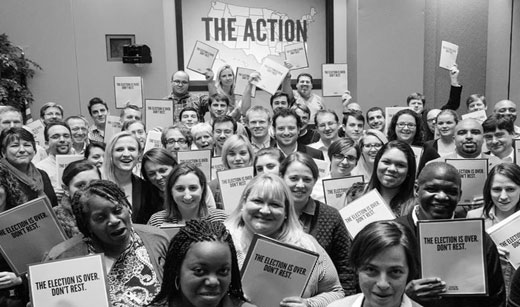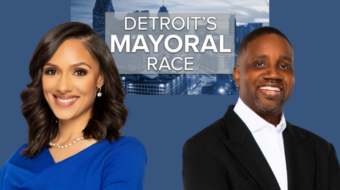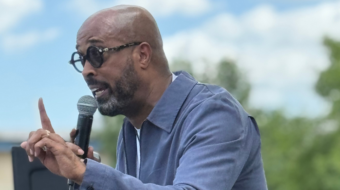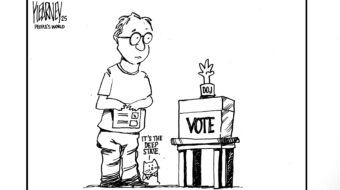
The economy is framing everything in the post-election period – and not only for the short term. Here’s why.
While some pickup in economic activity has occurred since the crash in 2008, overall employment gains and economic growth have been fitful and anemic.
It’s hard to see where the dynamism is going to come from anytime soon without the entry of the federal government on a scale that only a few in Washington are ready to embrace.
Debt and bubble-driven growth, which drove the last economic expansion (1992-2007), is not an option.
Further, there will be no help from our global partners. Europe is reeling. And China is not positioned to carry the rest of the world on its shoulders. Its growth has slowed too and it’s feeling the contradictions that come from its deep integration into the capitalist global economy.
Crises are supposed to be capitalism’s mechanisms to clear away the debris that inhibits a revival of production, profits, employment and growth on a wider scale. But that scenario doesn’t appear to be in capitalism’s future.
Instead, slow growth and high unemployment seem like the “new normal.” And, always lurking in the background is the danger of deeper crises.
All of which begs the question: Are we entering a new era of capitalism, characterized by overproduction, hyper-intense monopolistic rivalry, and long-term economic stagnation on a world scale?
My initial read (more in-depth study is required) is that we are entering such an era. That would go a long way in explaining why big capital is in such a frenzy to impose a new model of political and economic governance on the working class and people – one that is stripped of social obligations to its citizens, “free” of unions and activated civic organizations, unchecked by weakened democratic institutions, and shorn of any barriers to its global accumulation strategy.
The dream of the 1 percent is to return to the Gilded Age when neither the people nor nature had any rights that capitalism had to respect.
The outcome of the 2012 elections has made the realization of the 1 percent’s dream more difficult, but it has by no means settled the question. Don’t expect big capital to throw in the towel.
While it supported Romney, its claws are in the sides of both parties and in every branch of government. The state remains a capitalist state.
Faced with this reality, the option for the working class and people in the near and medium term isn’t to retreat from electoral and political struggle. Instead, working people need to further expand their independent and mass presence in the electoral and political arena (as well as other arenas) of struggle, where advanced democratic solutions to the capitalist crisis can be fought for and won. For example: expansion of voting rights; curbs on the financial power of big capital; investment in meaningful and massive jobs creation; protection of the equality and rights of women, immigrants, workers, people of color, gays and lesbians; steps toward greening and de-militarizing our economy and society; protection and expansion of public services, education, health care and retirement security.
These struggles will lead us to the longer-term option: socialism – reshaping our society into one in which working people and their allies govern in the interest of the immense majority. A society that puts people and nature before profits.
Photo: theaction.org on Facebook










